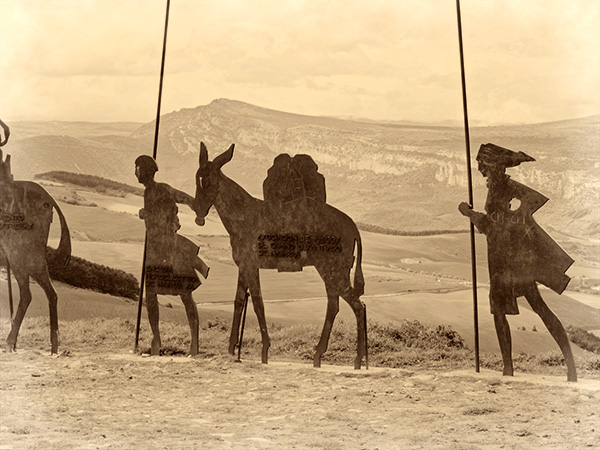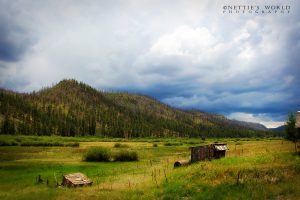As we approached the Lenten season, one of my internet friends posted a challenge for anyone who wanted to join in taking up a new practice of daily bible reading. Now it’s pretty embarrassing to admit that I haven’t yet formed that very excellent habit, especially considering the great examples and formation with which I was raised. Oh, I think I can safely say I read something from scripture every day, usually through blog posts or comments, and I’ve certainly gleaned much about scripture from those kinds of sources, but it’s the intentional habit I have lacked.
But hey, better late than never!
So this challenge is very open and non specific. Just read some scripture, any amount, from any book, each day. Pretty simple! And yet I still managed to flub day one — missed getting started yesterday. Isn’t it interesting the number of things that can get in your way when you want to take up a devotional practice…
This morning I was up early (possibly something to do with giving up Netflix for my Lenten sacrifice, thereby getting to bed at a decent hour) and opened up the Laudate app on my Kindle. Since I’ve done bible studies of so many new testament books, and am very familiar with the old testament as well, I thought, why not start with something unfamiliar to me as a new Catholic? So I scrolled through until I found the book of Tobit, and began my Lenten journey.
I hope to blog through my readings this Lent, perhaps not every day, but 2-3 times a week at least. Hopefully that will keep me on track (and the Lord knows well how difficult it is to keep me on track)! 🙂
Some standouts from Chapter One of the book of Tobit, ways in which Tobit models righteousness.
- 1 Tobias of the tribe and city of Nephtali, (which is in the upper parts of Galilee above Naasson, beyond the way that leadeth to the west, having on the right hand the city of Sephet,)
2 When he was made captive in the days of Salmanasar king of the Assyrians, even in his captivity, forsook not the way of truth,
— Thinking about what it would be like to live in captivity and under oppression, as many of our modern day martyrs do, this simple statement about Tobit – “even in his captivity, forsook not the way of truth” – shows him as a model of faithfulness, no matter what the circumstance, no matter what the adversity. - 10 And from his infancy he taught him to fear God, and to abstain from all sin.— A good example of godly parenting.
- 12 (When all ate of the meats of the Gentiles) he kept his soul and never was defiled with their meats. — Modeling integrity and strength of character in the face of peer pressure.
- 19 Tobias daily went among all his kindred, and comforted them, and distributed to every one as he was able, out of his goods:20 He fed the hungry, and gave clothes to the naked, and was careful to bury the dead, and they that were slain. — Modeling charity and service to others.
- 19 Tobias daily went among all his kindred, and comforted them, and distributed to every one as he was able, out of his goods:
20 He fed the hungry, and gave clothes to the naked, and was careful to bury the dead, and they that were slain.
21 And when king Sennacherib was come back, fleeing from Judea by reason of the slaughter that God had made about him for his blasphemy, and being angry slew many of the children of Israel, Tobias buried their bodies.
22 But when it was told the king, he commanded him to be slain, and took away all his substance.
23 But Tobias fleeing naked away with his son and with his wife, lay concealed, for many loved him.
24 But after forty-five days, the king was killed by his own sons.
25 And Tobias returned to his house, and all his substance was restored to him. — As an example of God’s faithfulness to his servant, Tobias is rewarded in his time of affliction by the reciprocal affection of those he has sacrificially served.
[hr color=”dark-gray” width=”15%” border_width=”2px” ]
Chapter 2 contained these gems:
- 8 Now all his neighbours blamed him, saying: Once already commandment was given for thee to be slain because of this matter, and thou didst scarce escape the sentence of death, and dost thou again bury the dead?
9 But Tobias fearing God more than the king, carried off the bodies of them that were slain, and hid them in his house, and at midnight buried them. — Again, a model of faithfulness to God’s law, and also the sense of the profound reverence for the body. - 10 Now it happened one day, that being wearied with burying, he came to his house, and cast himself down by the wall and slept,
11 And as he was sleeping, hot dung out of a swallow’s nest fell upon his eyes, and he was made blind.
12 Now this trial the Lord therefore permitted to happen to him, that an example might be given to posterity of his patience, as also of holy Job.
13 For whereas he had always feared God from his infancy, and kept his commandments, he repined not against God because the evil of blindness had befallen him,
14 But continued immoveable in the fear of God, giving thanks to God all the days of his life. — I note here that there is no equivocation about the “evil of blindness” — it is not re-packaged as a “gift” or a “blessing in disguise”; it is an evil thing to have one’s sight taken, whether by some freak accident with bird poo, an injury or an illness. God means for us to see the beautiful world He made, the better to glorify Him for His wondrous works, and the better to assist Him in fulfilling the creation mandate as well as spreading the gospel and doing works of mercy. And yet, in spite of the loss he experienced, he “repined not against God… giving thanks to God all the days of his life.” Oh that we might all be similarly disposed to the infirmities and trials along our journey toward heaven!
[hr color=”dark-gray” width=”15%” border_width=”2px” ]
Photo Credit:
Sanjiva Wijesinha
(Slightly edited for use here,
but you may be interested in reading his several articles about
walking the Camino de Santiago.)




paulyho39
7 Mar 2014Thank you Annette for sharing this…and your thoughts on these verses! Needless to say the thoughts on “sight” and “blindness” seem ever so appropriate for me…tho’ I am not BLIND, my vision problems do cause me consternation at times. I pray I will continue to serve and praise Him regardless!